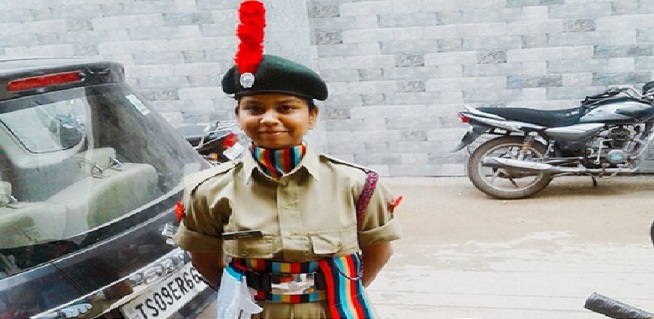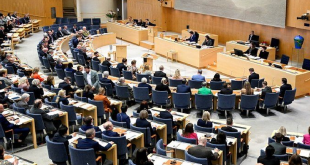18 July, 2019
By SJA Jafri + BBC
NEW DELHI: As many as 23 teenagers in the southern Indian state of Telangana have killed themselves since their school-leaving exam results were announced in April. BBC Telugu’s Deepthi Bathini explains why the results have become controversial.
Thota Vennela enjoyed cooking, watching comedy shows and eating street food.
Her older brother, Venkatesh (19), had recently taught her to ride his motorbike. “I was so happy that she could ride it like a professional biker. But sometimes I would follow her without her knowing to make sure that she was safe,” he says. The siblings fought over the bike and played pranks on each other, but they were close.
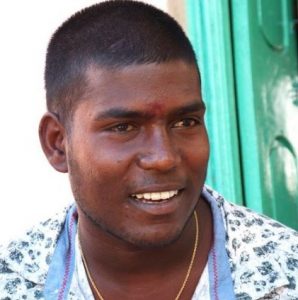 Venkatesh struggles to hold back tears as he pulls out his wallet to show his sister’s photograph. On 18 April – the day she found out that she had failed her 12th class (school leaving) exams – Vennela consumed poison. She died hours later in a hospital.
Venkatesh struggles to hold back tears as he pulls out his wallet to show his sister’s photograph. On 18 April – the day she found out that she had failed her 12th class (school leaving) exams – Vennela consumed poison. She died hours later in a hospital.
“She kept repeating, how could I fail?” recalls her mother, Sunitha. “We consoled her and told her it was fine and she could apply for re-evaluation or take the exams again. But even at the hospital she kept saying, ‘I should have passed’.”
Vennela was one of more than 320,000 students in Telangana who failed their school-leaving exams. All of them were enrolled in schools that teach a syllabus set by the state education board. (Some Indian schools also teach syllabuses set by a national education board.)
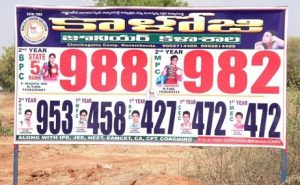 Higher education in India is fiercely competitive. And school-leaving exams are crucial for securing a spot in good universities – they are seen as a ticket to a well-paying job and a bright future. Top universities also conduct independent admission tests, but students who perform well in those can still lose their seat if they fail their school-leaving exams.
Higher education in India is fiercely competitive. And school-leaving exams are crucial for securing a spot in good universities – they are seen as a ticket to a well-paying job and a bright future. Top universities also conduct independent admission tests, but students who perform well in those can still lose their seat if they fail their school-leaving exams.
In the days following the announcement of the exam results, shocked students and parents protested, alleging there had been errors in marking and demanded the exams be marked again.
“My son scored full marks in maths, physics and chemistry in his 11th class exams. But this year the results show that he scored one mark in maths and zero in physics. How is that possible?” says Venugopal Reddy.
“He had been studying for other competitive tests. But after the results, he is dejected. He has stopped studying and eating, and refuses to leave the house. I am worried about his mental health,” he adds.
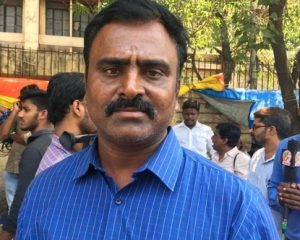 As protests intensified, suicides by students who had failed the exams were reported from across the state.
As protests intensified, suicides by students who had failed the exams were reported from across the state.
A child rights group petitioned the state high court, which ordered the board to re-mark the answers of all those who had failed. The new results were announced on 27 May – the scores of 1,137 of the students who had failed were revised, and they were declared successful in the exams. One student who had initially scored zero marks in a subject, ended up scoring 99 when her answers were re-marked.
At the heart of the controversy is a private software firm, Globarena Technology, which in 2017 won the government contract to conduct the exam across the state for more than 970,000 students. It is also responsible for processing the final scores to announce results.
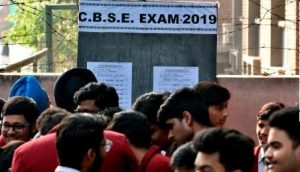 The state education board, which outsourced the job to Globarena, has said the suicides were not “connected to mistakes due to technical and result processing errors”.
The state education board, which outsourced the job to Globarena, has said the suicides were not “connected to mistakes due to technical and result processing errors”.
Globarena conceded there had been errors.
“We follow the process prescribed by the board. The incidents that have happened are unfortunate. Initially there were technical errors. We have made the corrections,” VSN Raju, the company’s CEO, told the BBC in April.
The family of one of the students who killed herself – Anamika Yadav – has said it will file criminal charges against the education board and Globarena.
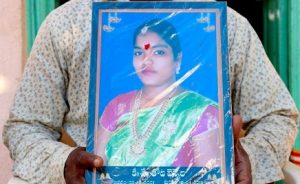 Her family told the BBC that the 16-year-old killed herself hours after finding out that she had failed the exams. On 27 May, the re-evaluation said she had passed the exams, but hours later the marks were again revised – she had failed again.
Her family told the BBC that the 16-year-old killed herself hours after finding out that she had failed the exams. On 27 May, the re-evaluation said she had passed the exams, but hours later the marks were again revised – she had failed again.
It seems there was a mistake in updating the scores. Board officials said Globarena was not involved in the re-evaluation process.
“This makes us suspicious,” says Anamika’s father, Atul Ganesh.
Vennela’s father, Gopalakrishna, also says he wants to file charges. “I can’t trust the board. How can my daughter, who was always a good student, fail? I need answers.”
The re-evaluation did not include the marks of any of the 23 students who killed themselves. But their parents are not sure what to make of these results – they are shocked and heartbroken, but are also bewildered and suspicious.
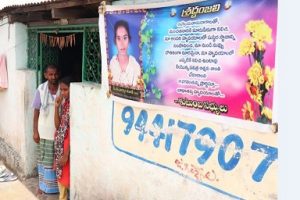 Most of the parents spoke of their children’s diligence and ambition.
Most of the parents spoke of their children’s diligence and ambition.
Vodnali Shivani, 16, woke up at the crack of dawn every morning to study. She wanted to be an engineer and she would often say to her father: “Wait for five years and our lives will change.”
Devasothu Neerja wanted to become a doctor, and she spent most nights studying. “She always passed all her exams. So we thought we must do whatever we can to help her,” says her father, Rupal Singh.
Bhanu Kiran, 18, loved maths and wanted to become an ethical hacker so he spent a lot of his time watching YouTube tutorials about the subject.
But what underscores all of these memories is the immense pressure to succeed. Students in India – especially those who want to study engineering or medicine – take a series of highly competitive exams in quick succession.
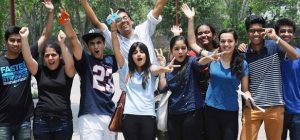 And the race to secure a college place starts early – as early as two years before the school-leaving exams – allowing for a risky and prolonged mix of stress, expectations and dreams.
And the race to secure a college place starts early – as early as two years before the school-leaving exams – allowing for a risky and prolonged mix of stress, expectations and dreams.
“The exam itself is surrounded by stress,” says psychologist Vasupradha Kartic. “Students need to be counselled regularly.”
She adds that students need to be able to see beyond the exams – that failing doesn’t mean they have no options left for a career or a future.
 Pressmediaofindia
Pressmediaofindia
